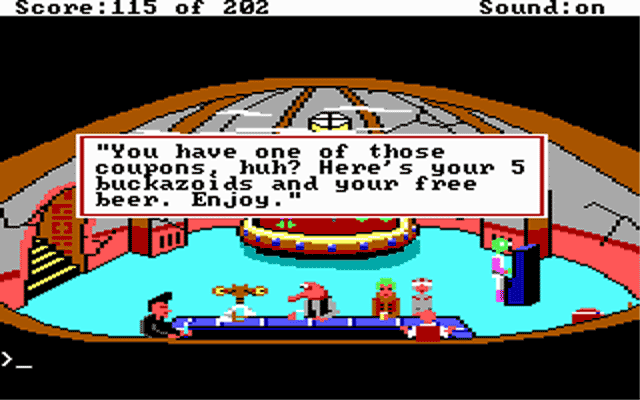I am not a researcher in gamification or educational games, but I teach, I teach game development, and I play games. With this background, I’ve been thinking on how current gamification is directed, and especially, how educational games are being created.
Gamification
First, gamification is considered the solution for engagement, and thus, it is being applied to different areas of knowledge. For education, you get rewards if you know the lesson. For the work, you get badges for responding quickly to tickets. While this might work for some, it is not a long term solution. We lack a lot of research on how these methodologies can motivate someone for a long period of time.
In fact, if we look to games, there are hundred of them in our App stores (Google, Apple, Steam, and others). Most of them, mainly smart phone games, have gamified features. They login to the Google Play service, for instance. They offer rewards, and even small tricks you can use during the game to get better results. I doubt that any of these are enough for getting engagement. You keep playing a game if it is fun, if you have some challenge, and if the game itself works properly.
One of the great successes of smartphone games was FarmVille. There you got badges and points. And you could visit your friends plantations. But that was not what made you play, and awake in the middle of the night to crop your plantations. You just love the fun it is to plant things, and see them grow, the challenge of trying to answer to your customers, and the fun of discovering which other plants are available in the game.
Educational Games
In the other hand, we have educational games. Most of these are more simulation tools than games. When developing these games, developers concentrate on the subject they want to teach, and then, try to find a way to transform that knowledge in a game. This leads to lack of story, lack of challenge (other than the subject learning challenge) and most of times, given the lack of funds, to the lack of visual quality.
While these are not intended to be games, but simulators, PhET applications are example of what I mean. They focus on the teaching, not in the game. This does not mean that there are some games, classified as educational games, that are truly remarkable. In any case, most of these games end up as being adventures, where you are faced specific (educational) challenges.
How I see Educational Games
In my early days, I was a PC gamer. Now, unfortunately, most not a gamer anymore, unless I have to play my students’ games. But, when I was a PC gamer, I learnt a lot from games. And these games were never classified as educational games, and they are still not considered as such.
Lets start with the old Sierra adventures, like Police Quest, Space Quest and the like. I loved to play these games. Not being a native English speaker, I played for hours with the Portuguese-English-Portuguese dictionaries in my hand. It did not just allow me to gain more terminology, and better understanding of the language, it also made me write sentences. Of course that these old Natural Language Processing (NLP) engines were keyword based, and many times the simple use of a specific set of words was enough to perform some action. Nevertheless, the player needed to know what terms to use. While being a text-based adventure, these games included small dexterity tasks, that helped the player to do different things during the game play. The game did not include any type of gamification. Just that score at the top, that most of the player ignored. It was most useful to know if you were progressing in the game, or just stuck in the same screen. This game is not educational. It never intended to. For English native speakers it might never be. But for non English-speaking players, indeed, it was very educational.

Another good example of a non educational-game that is, in fact, very educational, is Civilization. Despite its old graphics, this game is a strategy game, where you need to create and build a civilization. There are other similar games, like Europa Universalis. These games allow the player to learn about geography, but also about history, and civilization evolution. Again, the base of the game is not to teach anything, but to be an engaging strategy game. And it offers what it promises.
For strategy, I can’t skip Sim City. Not just the first, but up to 3000, it has a lot of interesting educational aspects. So, basically Politics, Economics, Social Science. And, for 3000, energy and water supply, and waste treatment. If some aspects were simplified, they gave the player awareness. You end up knowing how taxes work, the benefits of different energy sources, and a lot of other details of society.
There are other good examples, some of which I did not play. One of such games, that I would love to play, but did not have the chance yet, is Papers, Please. This game puts the player in the role of a immigration officer, that needs to decide what immigrants to allow to enter the country. This is not a traditional education game, in the sense that it teachers some specific subject from school. But it raises awareness of the problem of immigration, and how that affects people and families
Conclusion
At the end of this post, I think I should only raise the question whether we want to make education a game, or if we want to have games that teach. My main motivation on writing this post was to share my thoughts, and allow some discussion on this aspect.



